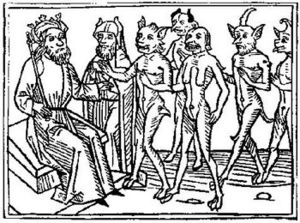Belial

Constructing and interpreting under adverse conditions deprivation of civil right and deprivation of human rights. Violations of first and fourteenth amendment rights. Simple and necessary medical treatments denied. Medicine denied through tampering. repeated toxic exposures. 1995- present with varying and increasing extremes. Under construction with errors. Documentation chosen by available sources and may not be 100% accurate or may contain omissions, slants, or extraneous information
Revelation 14: 7 And I saw another angel fly in the midst of heaven, having the everlasting gospel to preach unto them that dwell on the earth, and to every nation, and kindred, and tongue, and people, 7Saying with a loud voice, Fear God, and give glory to him; for the hour of his judgment is come: and worship him that made heaven, and earth, and the sea, and the fountains of waters. 8And there followed another angel, saying, Babylon is fallen, is fallen, that great city, because she made all nations drink of the wine of the wrath of her fornication. 8And there followed another angel, saying, Babylon is fallen, is fallen, that great city, because she made all nations drink of the wine of the wrath of her fornication. 9And the third angel followed them, saying with a loud voice, If any man worship the beast and his image, and receive his mark in his forehead, or in his hand, 10The same shall drink of the wine of the wrath of God, which is poured out without mixture into the cup of his indignation; and he shall be tormented with fire and brimstone in the presence of the holy angels, and in the presence of the Lamb: 11And the smoke of their torment ascendeth up for ever and ever: and they have no rest day nor night, who worship the beast and his image, and whosoever receiveth the mark of his name. 12Here is the patience of the saints: here are they that keep the commandments of God, and the faith of Jesus.
Ecclesiastes 12:13 Let us hear the conclusion of the whole matter: Fear God, and keep his commandments: for this is the whole duty of man.14For God shall bring every work into judgment, with every secret thing, whether it be good, or whether it be evil.1833 (1) 1836 (1) 1844 (11) 1848 (2) 1850 (1) 1866 (1) 1898 (1) Brigham Young (1) Charles Taze Russell (1) Charles Whitman (1) Civil Rights Act of 1866 (2) Compromise of 1850 (2) Daniel Webster (1) Declaration on the Granting of Independence to Colonial Countries and Peoples (1) Dmitri Mendeleev (2) Evolution of the British Empire (1) General Mills (1) George Orwell (1) Great Flood of 1844 (1) H. G. Wells (1) Joseph Smith Jr. (1) Kolob (1) military and religion (1) Military and Religion (1) Slavery Abolition Act 1833 (1) The Devil and Daniel Webster (1) The New World Order (Wells) (1) The War of the Worlds (1) The War of the Worlds (radio) (1) Will Keith Kellogg (1) William Miller (preacher) (1)
